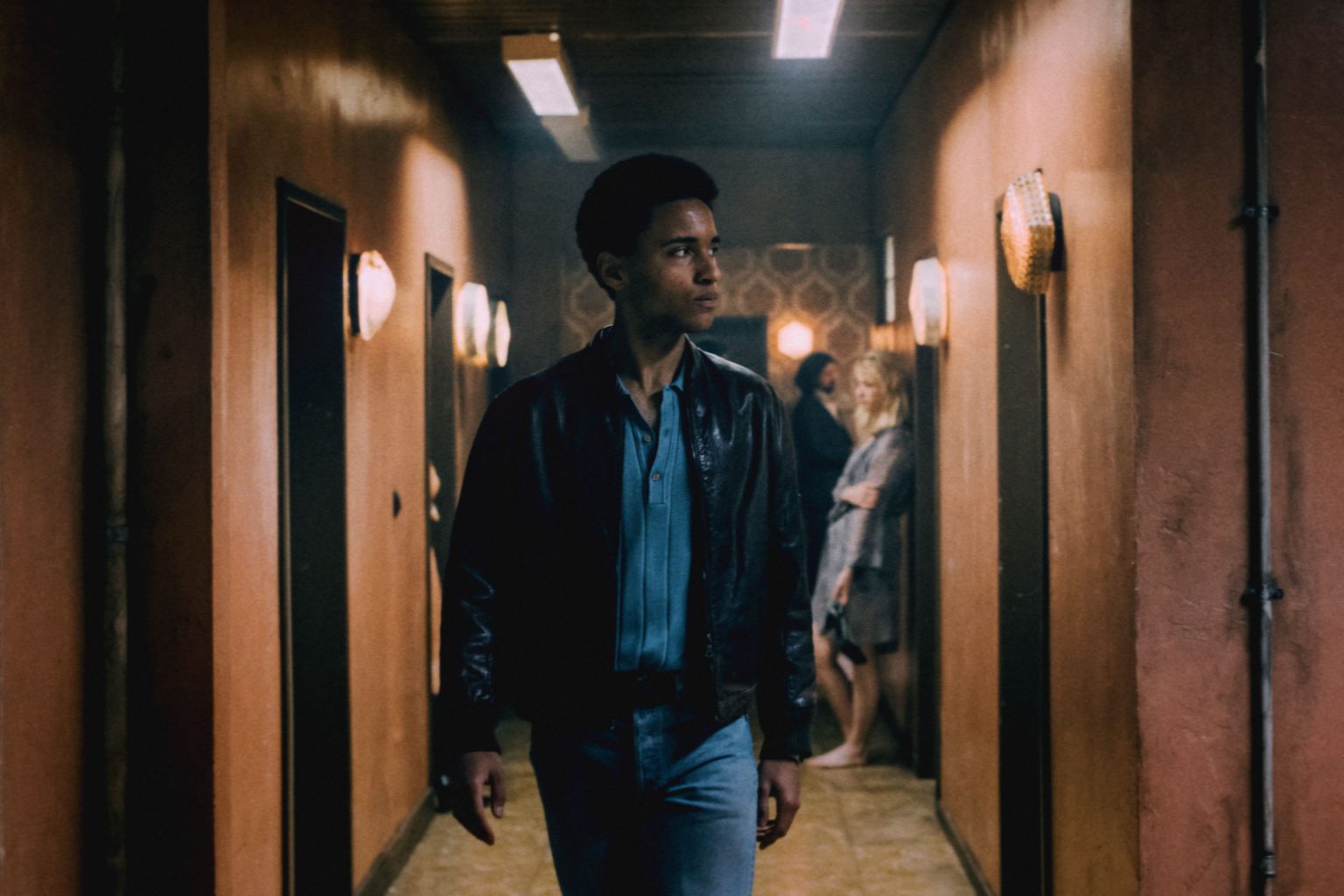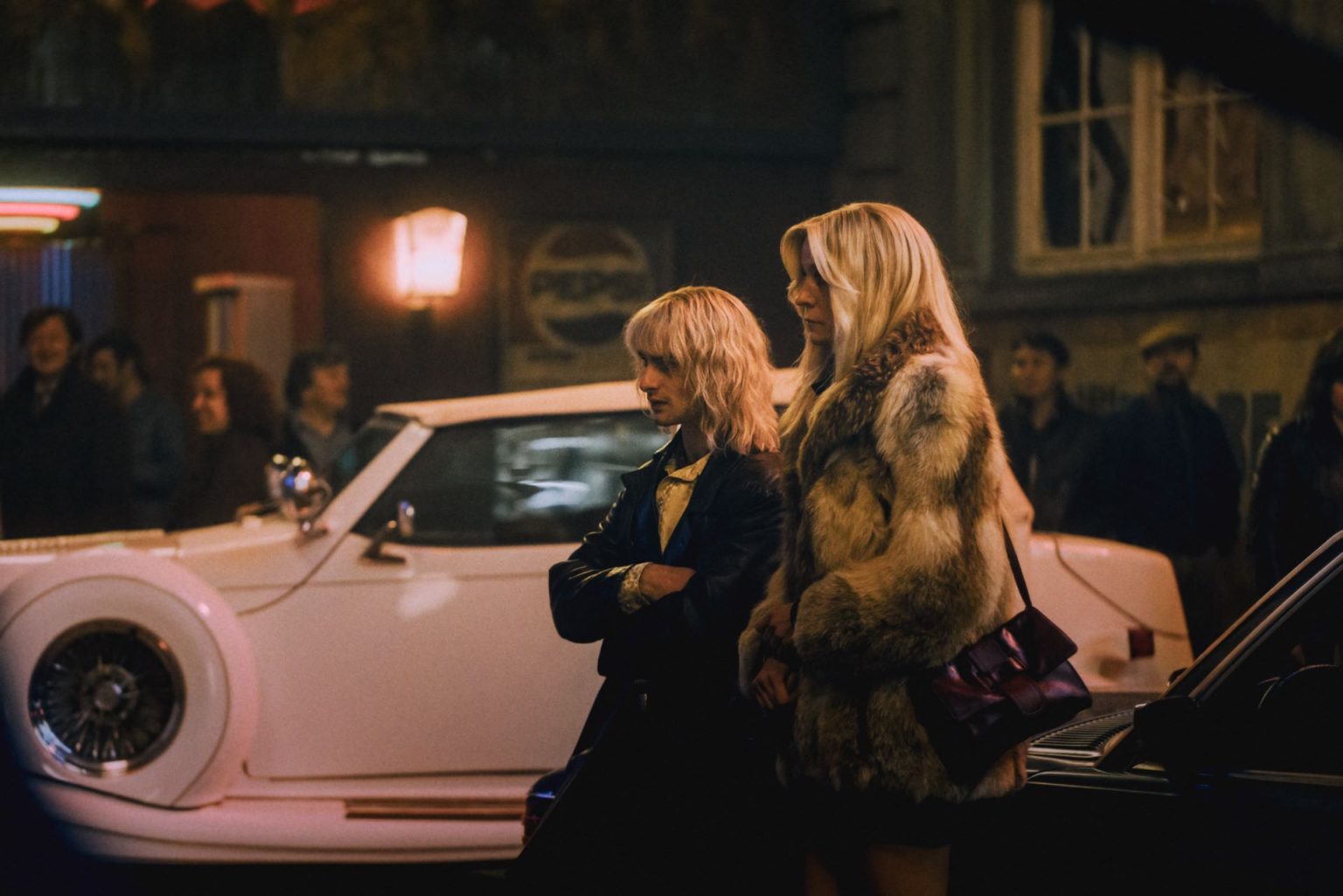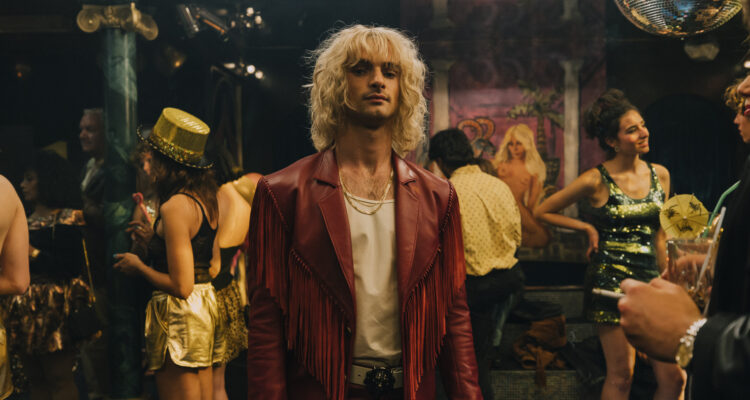Created by Niklas Hoffmann, Peter Kocyla, and Rafael Parente, ‘The Pimp No F**ing Fairytale’ or ‘Luden: Könige Der Reeperbahn’ is an Amazon Prime Video period drama series. Set in the early 1980s, the plot revolves around Klaus Barkowksy (Aaron Hilmer), a struggling artist with enormous dreams. When he meets a sex worker named Jutta (Jeanette Hain), the trajectory of his life drastically changes. He becomes a powerful pimp in the Reeperbahn entertainment district in the St. Pauli district in Hamburg, Germany. As the head of the newly-established Nutella gang, he faces inevitable competition and enmity from the GMBH, a notorious group that has been active for years.
‘The Pimp No F**ing Fairytale’ paints a candid picture of Hamburg-St. Pauli, which was widely regarded as the sex capital of the world at the time. The series doesn’t shy away from portraying the violence and exploitation in the sex industry as well as the horrors of the AIDS pandemic. If that has made you wonder whether ‘The Pimp No F**ing Fairytale’ is based on actual events, we got you covered.
A True Tale with Dramatic Embellishments
Yes, ‘The Pimp No F**ing Fairytale’ is based on a true story, as the disclaimer appearing at the start of the series clarifies, though some names and events were changed. Barkowksy is a real person, and the show’s depiction of how he became an extremely powerful pimp is also inspired by actual events.

As the series depicts, Wilfried “Frieda” Schulz was in control of the St. Pauli neighborhood until the mid-1970s. Often referred to as the godfather of the place, he was seen as a governor on the Reeperbahn. Toward the end of the 1970s, however, the GMBH gang became a prominent entity in the neighborhood. This is where it seems that the show slightly diverts from reality. While ‘The Pimp No F**ing Fairytale’ depicts that the Nutella gang was established in the 1980s, according to various sources, the Nutella gang had been active since the 1970s.
Either way, the Nutella gang became a formidable force with Barkowksy serving as one of its leaders. The show claims that Barkowksy came up with the unconventional name of the Nutella gang, whereas it was actually given to them by their rivals at GMBH, who mocked Barkowksy and his associates by saying that they need to eat more Nutella bread to be stronger.
The show also depicts how cocaine changed the sex industry in St. Pauli in the 1980s and caused a vicious war between the different pimp gangs. As shown in ‘The Pimp No F**ing Fairytale,’ Michael Luchting or the Handsome Micha, the M of GMBH, was hanged by his enemies in a forest in the Lüneburg Heath. “This time in Hamburg is like that Stuff from an old Scorsese film. But that all happened here with us, in Germany. Often enough, the reality is even more spectacular than any fiction,” said Parente in an interview with DWDL.
Like his character, Hilmer is a native of Hamburg. Asked in an interview how important the Reeperbahn entertainment mile and the St. Pauli neighborhood are for the city, the actor told Prisma, “Hamburg is a very exciting city. Based on the number of inhabitants, it has a very high density of millionaires and is an incredibly rich city. In Blankenese and around the Alster, it is very bonzig. At the same time, the city has a district like St. Pauli, which at first glance doesn’t seem to fit. But that goes hand in hand because people with a lot of money also like to stay there. St. Pauli and the Reeperbahn are like a melting pot where different worlds come together. St. Pauli brings people together at one table who come from very different backgrounds.”
The Nutella gang eventually lost control of St. Pauli to newer gangs such as the Streetboys gang, the Chicago Gang, and the Hells Angels Germany. Several members of the Nutella gang perished, and those who survived, left the sex industry altogether, including Barkowksy. Nearly four decades later, completely different organizations now control the area.
“… it’s not St. Pauli from back then,” Hilmer told the same outlet. “Nevertheless, there are always corners where time has stood still. A big theme in the series is that fists used to be used for fighting. There was one clear rule: no guns! A lot has happened there alone. Today there are regular shootings between groups of rockers. At the same time, large groups of tourists with guides walk through the area. Change can be felt in all sorts of places, but that is also part of it. At the same time, I see tourist tours like this as an opportunity to take a critical look at sex work and the oppression of women workers that may be associated with it.”

Ultimately, the narrative of ‘The Pimp No F**ing Fairytale’ is rooted in reality. While there are examples of creative liberty in the show, they are used more often than not to avoid legal troubles. The Amazon Prime Video series is a time capsule in its authenticity, offering a detailed look at Hamburg in the 1980s.
Read More: Best German Shows on Netflix


You must be logged in to post a comment.